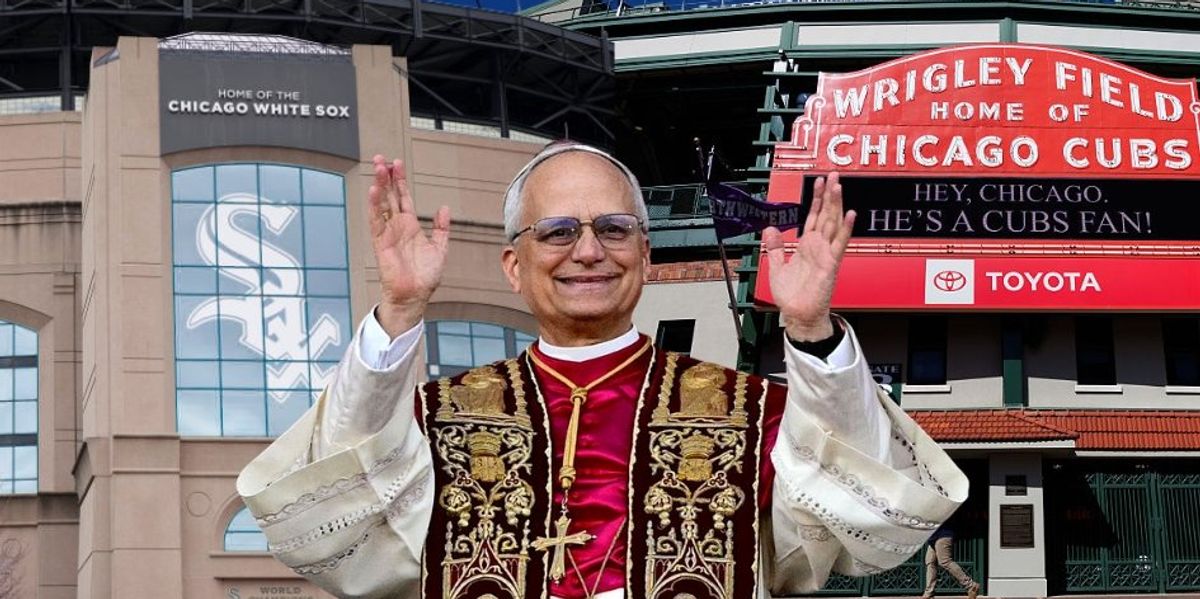For decades, conservatives have argued to cut funding for “public broadcasting” in the US,but never got around to actually accomplishing much. At times, the effort to defund the Center for Public Broadcasting along with NPR and PBS reminded one of a wry observation often misattributed to Mark Twain about the weather: Everybody talks about it, but nobody seems to do anything about it.
However, the times, they are a-changing, as Bob Dylan (definitely) sang. The New York Times reports today that the FCC’s new chair is opening an investigation as to whether NPR and PBS corporate affiliations violate the non-profit status of public broadcasting, with an eye toward generating a legislative response in Congress.
The chairman of the Federal Communications Commission has waded into the politicized debate over NPR and PBS, ordering up an investigation that he said could be relevant in lawmakers’ decision about whether to continue funding the public news organizations.
Brendan Carr, the chairman, said in a letter to NPR and PBS on Wednesday that the inquiry would focus on whether the news organizations’ member stations violated government rules by recognizing financial sponsors on the air.
Mr. Carr said that NPR and PBS stations operate as noncommercial broadcast organizations, but that they may be airing “announcements that cross the line into prohibited commercial advertisements.”
“To the extent that these taxpayer dollars are being used to support a for-profit endeavor or an entity that is airing commercial advertisements,” Mr. Carr wrote, “then that would further undermine any case for continuing to fund NPR and PBS with taxpayer dollars.”
That certainly would provide meat for one argument against public broadcasting. Conservatives have complained that the non-profit status of these entities is questionable, and that indeed they operate much as other for-profit broadcasters do. (Functionally, perhaps even more so, as profit margins are thin anyway for broadcasters in recent years.)
However, that is hardly the only argument that conservatives have made to defund these media orgs. The US has a robust mix of for-profit and non-profit media orgs, both broadcast and otherwise, and those markets have exploded into a myriad of choices for consumers. There is no good reason for the federal government to subsidize any market entrants, not even when labeled “public” to note their affiliation with the government. We don’t have a “public” car, or a “public” toothpaste, or even a “public” newspaper, despite a lot less competition in local markets for the latter. Why should we have a “public broadcaster” in radio or TV in the midst of such diverse market competitors?
And there’s an even better argument than that from a conservative perspective when it comes to their identities as news organizations. A free country should not have a government-operated news agency passing itself off as independent. That kind of arrangement creates the potential for propagandizing in the name of “independent” reporting; in the cases of NPR and PBS, it has resulted in ideological capture by the progressive-elite federal bureaucracy.
And as we know, that’s precisely what former NPR editor Uri Berliner revealed last year in his op-ed at The Free Press. And what did NPR do when he tried to raise this issue in-house? No one listened. When he raised it in his outside op-ed, NPR suspended Berliner for publishing critiques that were “profoundly disrespectful, hurtful, and demeaning,” as though NPR employees were part of a kindergarten class.
MoveOn is already panicking that the ideological capture might come to an end:
Donald Trump and his allies are attacking public broadcast networks PBS and NPR. The Federal Communications Commission chair has officially opened an investigation into NPR and PBS sponsorships—claiming that they may have violated government rules by recognizing fiscal sponsorships on air.
These baseless attacks and investigation will be used to determine if Congress should continue funding the public news organizations.
The allegations are far from baseless, but those aren’t even the best reasons to end this trough-feeding by political activists. If NPR wants to run a Romper Room of Retaliation instead of a newsroom, that’s fine — but they should not get a dime of taxpayer funding to support it. The federal government should get out of the domestic broadcast and news business altogether, in fact. If the public values “public” broadcasting, then let the public choose to support it directly.
Defund it all. The weather has changed, and it’s time to do something about this.
Addendum: Our readers have been generous in making sure that independent voices remain viable against the attempts by censors and the Protection Racket Media to shut us down. NPR and PBS played significant roles in suppressing news and information, especially during the pandemic. Many of our readers have joined the fight as part of our VIP and VIP Gold membership, and they have been crucial to our operations as an independent platform and the ability to debate all of the issues honestly.
The mainstream media has transformed itself into the propaganda arm of the Left, and they work hard to intimidate advertisers and pressure Big Tech into choking off access to competing points of view. We hope we can gather as many allies as possible to keep all of these issues in the public square – and indeed to preserve the public square at all.
Join us in the fight. Become a HotAir VIP member today and use promo code FAKENEWS to receive a 50% discount on your membership.
Read the full article here




![Tulsi Gabbard Unloads on the Intel Agency Corruption [WATCH] Tulsi Gabbard Unloads on the Intel Agency Corruption [WATCH]](https://www.rvmnews.com/wp-content/uploads/2025/01/2025.01.31-02.11-rvmnews-679cda2446092.jpg)
![Trump Calls for Reinforcements to Aid in the ‘Largest Deportation in American History’ [WATCH] Trump Calls for Reinforcements to Aid in the ‘Largest Deportation in American History’ [WATCH]](https://www.lifezette.com/wp-content/uploads/2025/04/2025.04.28-09.51-lifezette-680f4f997691b.jpg)



